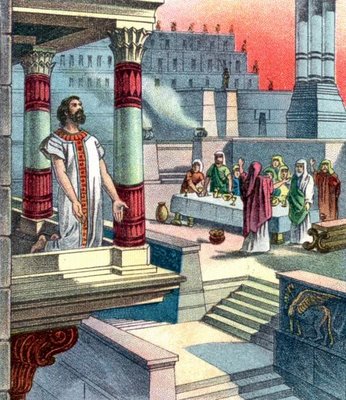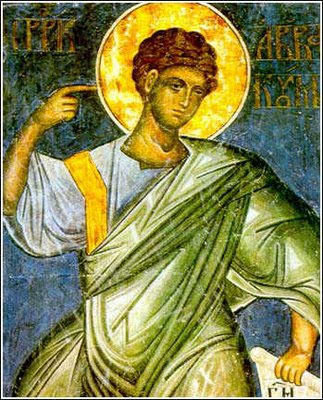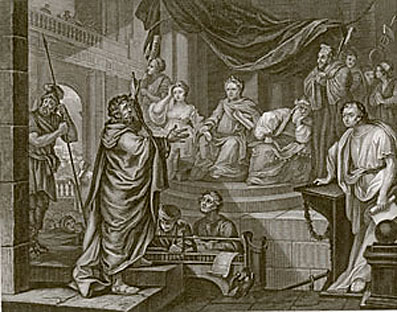Jun
24
2011

Another gem from Tim Nichols:
Consider Daniel 9, the prayer of the just man Daniel. Go ahead and read it; I’ll wait.
Did you notice that Daniel identifies fully with his people? “We have not obeyed the voice of the Lord our God, to walk in His laws,” he says — although Daniel himself did, in fact, keep them. “We have not made our prayer before the Lord our God” — although Daniel did so daily, even at risk of his life. “Neither have we heeded your servants the prophets,” he says — although he himself was a close student of the prophets, especially Jeremiah.
Continue reading
Comments Off | tags: Communion, Confession, Daniel, Habakkuk, Isaiah, Jeremiah, Judgment, Tim Nichols | posted in Biblical Theology, Christian Life, Quotes
Oct
29
2010
The Slow Wheels of Justice

I am Habakkuk the prophet. And this is the message that the LORD gave me. Our LORD, how long must I beg for your help before you listen? How long before you save us from all this violence? Why do you make me watch such terrible injustice? Why do you allow violence, lawlessness, crime, and cruelty to spread everywhere? Laws cannot be enforced; justice is always the loser; criminals crowd out honest people and twist the laws around.
Habakkuk 1:1-4
[Part 1 here.]
Perhaps there is more to this idea of “suing God” than a mere Puritan quote, especially when God Himself fails to keep His own rules, when God Himself appears to break Covenant.
Continue reading
Comments Off | tags: Abel, AD70, Covenant curse, Covenant Theology, David, Habakkuk, Judges, Peter Leithart, Postmillennialism, Revelation, Samson | posted in Biblical Theology, Quotes, The Last Days
Jun
2
2010
or Disputatio with God

Re The Wrath of Love, Michael Micklow commented:
(Correction – not Michael Shover – Michael got his Michael’s crossed)
“The prophet did not have to remind God, so much as he had to remind himself of the love of God, and to see God’s judgment as the wrath of love.”
What about the dangerous yet successful Mosaic paradigm in Exodus 32:7-14? In this section, the prophet is able to approach, contest and sway God’s wrath (vv. 11-13). In response to Moses’ challenge, the text tells us, “and the Lord changed his mind about the disaster that he planned to bring on his people” (v. 14)…
… And what was the cornerstone of his defense? — the appeal to memory (v. 13). Moses cites the exodus event, and he further appeals to the covenant established with Abraham.
Continue reading
Comments Off | tags: Ascension, David, Habakkuk, Intercession, James Jordan, Maturity, Memorial, Moses, Psalms, Satan, Zechariah | posted in Apologetics, Biblical Theology




























